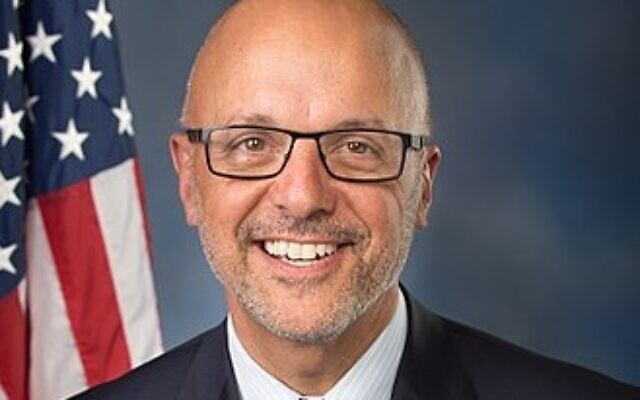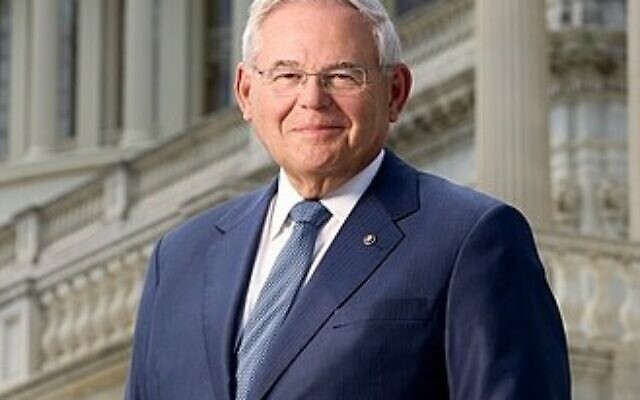Nov. 1 Israeli Election Could End in Another Stalemate
Political parties are split into sides “for” or “against” former Prime Minister Netanyahu.

Between 1949 and 2015, there were 20 elections in Israel to determine the make-up of the 120-seat Knesset, or legislature. Since then, there have been four elections and the fifth will be Nov. 1. Starting in April 2019, Israeli voters have been called to their polling stations repeatedly and no one will be surprised if another election will be required in early 2023.
Recent polls are predicting another stalemate, meaning that no grouping of compatible parties is likely to agree to a coalition that would give them at least 61 Knesset seats, enabling them to pass legislation and govern the country. As in the last four elections, the parties are generally split into “for” or “against” a government led by former Prime Minister Benjamin Netanyahu, the longest-serving leader in the country’s history. He is also standing trial on several corruption charges including fraud, bribery, and breach of trust, which is why some of his right-wing natural allies refuse to sit in a government led by him.
If this next election results in another deadlock, the current prime minister, Yair Lapid, will continue to lead the country until another election is held and a majority government is somehow composed. However, if Nov. 1 is indecisive, pundits believe that Netanyahu’s party, Likud, will likely replace him as the party leader, which could probably ease the prospect of forming a majority coalition government.
But Netanyahu is not the only controversial player in the upcoming election. Two members of the Religious Zionism party, Bezalel Smotrich and Itamar Ben-Gvir, who would support a right-wing government led by Netanyahu, have attracted a large percentage of the headlines in Israel as the election campaign heated up.

Ben-Gvir is the leader of the far-right party Otzma Yehudit (Jewish Power, in Hebrew), one of two parties that joined the Religious Zionism party for this election, along with the openly homophobic Noam party. When Ben-Gvir turned 18, he was exempted from the Israel Defense Forces due to his extreme-right political background. Before the last election in March 2021, Netanyahu said Ben-Gvir was “not fit” to be a member of his cabinet because “his positions are not mine.”
This month, Netanyahu reversed himself and announced that Ben-Gvir “certainly can” be a minister if the right wing is able to form a government.
As Israeli journalist Barak Ravid has reported, the increasingly popular Ben-Gvir is causing angst among pro-Israel U.S. politicians. Sen. Robert Menendez, chairman of the Senate Foreign Relations Committee, told Netanyahu that he had “serious concerns” about a coalition including “extremist and polarizing individuals like Ben-Gvir.” Ravid reported that Menendez said a government including Ben-Gvir “could seriously erode bipartisan support in Washington.”
The same report stated that another “senior U.S. official was very concerned about what impact such a political development could have on U.S.-Israeli relations.”

Congressman Brad Sherman subsequently tweeted that he “urges Israeli political leaders from all sides of the political spectrum to ostracize extremists like Itamar Ben-Gvir whose outrageous views run contrary to Israel’s core principals of a democratic and Jewish state. These extremists undermine Israel’s interests and the U.S.-Israel relationships, which I and my colleagues have worked to strengthen.”
But if U.S. congressmen are voicing concern about the composition of the next Israeli government, that is not the case of leading American Jewish organizations.
In 2019, the American Jewish Committee (AJC) stated that Otzma Yehudit’s “reprehensible” views should preclude its inclusion in an Israeli coalition government, prompting the American Israel Public Affairs Committee to agree and add that the organization “has a long-standing policy not to meet with members of this racist and reprehensible party.”
Unlike then, both Jewish organizations have remained more circumspect about the possibility of the next elections resulting in a coalition that incorporates Otzma Yehudit. The new CEO of the AJC, former Congressman from Florida, Ted Deutch, told the Times of Israel, “The one thing that I know for sure is that the values of AJC reflect the values of the U.S. and Israel, which is the shared commitment to democracy and inclusion. That’s not going to change,” said Deutch, who joined AJC on Oct. 3. He added that AJC would not “inject itself into the middle of the Israeli elections.”
Also taking a broader view of the upcoming elections is Dov Wilker, regional director of AJC Atlanta. “I really hope that a governing coalition can be put together. The polls are once again showing a tight race for being able to put a coalition together. One group of parties to pay close attention to are the Arab parties. They have split from a bloc back into separate parties and that could lead to headaches if they are needed for a coalition.”
Israeli voters are likewise probably hoping that somehow a coalition can be cobbled together and that they won’t have to return to voting booths within another few months.
- Israel news
- politics
- Jan Jaben-Eilon
- Knesset
- Prime Minister Benjamin Netanyahu
- yair lapid
- Likud
- Religious Zionism party
- Bezalel Smotrich
- Itamar Ben-Gvir
- Otzma Yehudit
- Jewish Power
- Noam
- Israel Defense Forces
- Barak Ravid
- Robert Menendez
- Senate Foreign Relations Committee
- American Jewish Committee
- American Israel Public Affairs Committee
- Ted Deutch
- Dov Wilker



comments